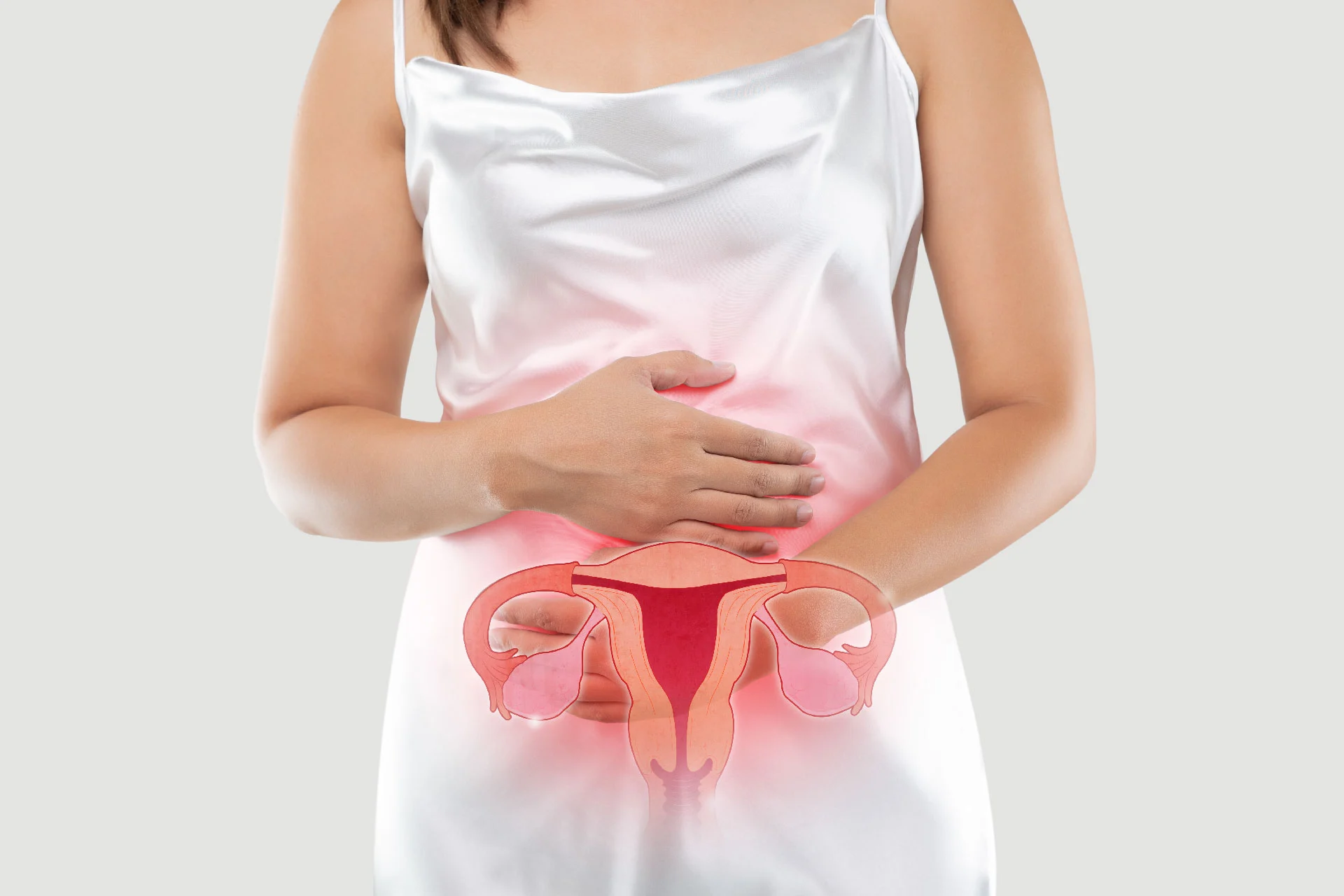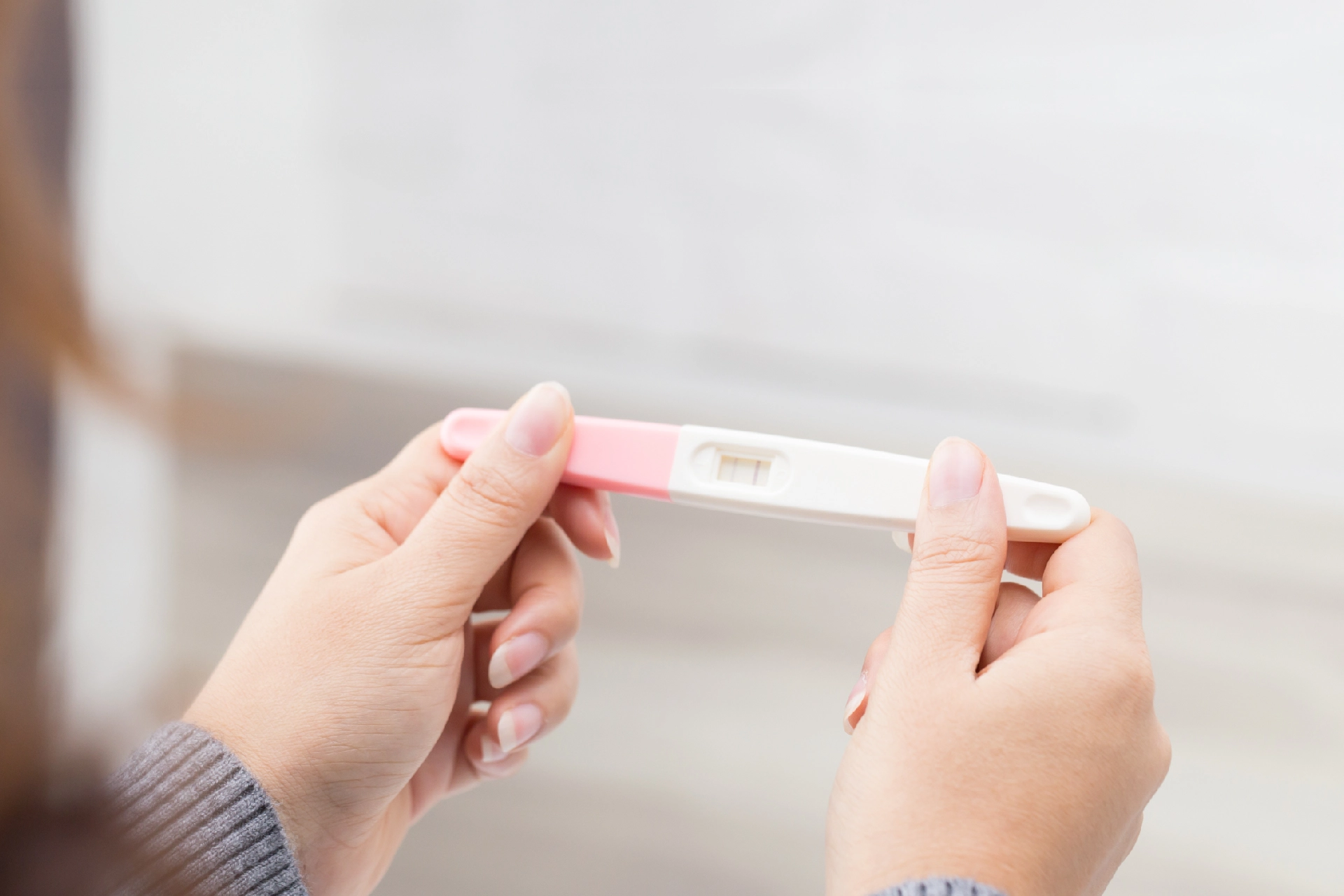Gynaecologist and Obstetrician | 5 min read
PCOS with Regular Periods: Can You Get Pregnant? All You Need to Know
Medically reviewed by
Table of Content
Key Takeaways
- PCOS is a hormonal condition that causes fertility issues in women
- If you are young and healthy, you can get pregnant even with PCOS
- Manage PCOS with a healthy diet and an active lifestyle
PCOS, known as Polycystic Ovarian Syndrome, is a hormonal condition that interferes with a women's reproductive system. In PCOS, ovaries fail to release eggs at the end of the menstrual cycle. Such a situation can affect pregnancy. Women suffering from PCOS have slightly larger ovaries that may produce immature eggs. In PCOS symptoms, you can note include irregularity in periods, PCOS hair loss, abnormal weight gain, increased facial hair, and acne on the face, apart from fertility problems. While the normal menstrual cycle lasts for 28 days on average, this length will extend beyond 28 days in those with PCOS. This causes irregular periods. However, women with PCOS can have regular periods too.
PCOS is attributed to excessive secretion of male hormones androgens. Normally, androgens are converted into female hormones. But when the ovaries produce high male hormones, it accounts for female infertility.
Here is a detailed view of how PCOS is linked to pregnancy.

Can I get Pregnant with PCOS?
Age is an important factor when it comes to getting pregnant. This is especially true for women with PCOS. If you are below 35 years of age with no medical problems, it may not be difficult to get pregnant within a year. Your spouse should also be medically fit, and your PCOS needs to be managed properly for this. As your age increases, fertility starts declining. Therefore, it is important to keep your PCOS in check with timely medical intervention. Another alternative is to keep your BMI in check by adopting a healthy lifestyle. Weight loss is effective in managing PCOS. However, it is better to consult a doctor if you are undergoing fertility problems.

How Will PCOS Affect My Pregnancy?
PCOS can cause a lot of complications during pregnancy. Miscarriages are common, especially in the early months of pregnancy. The other PCOS-related complication is gestational diabetes. This condition is unique to pregnant women. If not treated, causes health problems for the mother or fetus. If you have gestational diabetes, there is a high chance for your child to get Type 2 diabetes later in life.
Additional Read: PCOD vs. PCOSAnother complication that you may face is preeclampsia or a sudden increase in blood pressure. This can cause life-threatening ailments such as seizures, organ damage, or even death if not treated. Pregnant women with PCOS usually undergo cesarean delivery because of the underlying PCOS complications. In some cases, preterm birth may occur, that is, delivery before 37 weeks.
Can I have PCOS with Regular Periods and Get Pregnant?
While PCOS causes irregular periods in most women, it is possible to have PCOS with regular periods. In such a case, it may be easier for you to get pregnant. If you experience irregular periods, your menstrual cycle is shorter than 21 days or longer than 45 days. On average, the usual cycle is 28 days, but when there is irregularity, ovulation stops or occurs occasionally. It is also possible for you to get PCOS despite having regular periods.
If you have polycystic ovaries, your periods can still be regular. This affects your ovulation, thereby causing fertility issues. You cannot guarantee a normal ovulation cycle with regular periods if you face PCOS. This is the biggest hindrance for fertilization to occur and thus inhibits pregnancy. A clinical blood test by monitoring serum progesterone levels is the best way to determine if your ovulation is regular.
Another alternative is to detect ovulation at home by using ovulation prediction kits. A positive urine sample is indicative of the fact that ovulation is normal. However, these prediction kits may give you false positives as well. It is always ideal for getting a blood test done for confirmation. Another method is that you can check your basal body temperature. Any subtle changes noticed other than the usual might give a hint of ovulation issues.

What Is an Effective PCOS Problem Treatment?
Following a healthy lifestyle is an effective treatment for the PCOS problem. This means following a balanced PCOS diet chart and keeping your body weight in check. Exercise and an active lifestyle help decrease the effects of PCOS. A good place to start is to minimize junk food and carbs and switch to healthier options. Intake of medicines on your doctor’s advice also helps fight against PCOS. You can consume medicines like clomiphene, letrozole, and metformin to regularize ovulation, but take them only after a consultation with your gynecologist.
Additional Read: Yoga for Polycystic Ovary SyndromeIt is possible for women with PCOS to overcome fertility issues. What is needed is the right medical guidance to help you out of the crisis. When you notice irregular periods or fail to conceive despite regular periods, do not hesitate to get checked by an expert gynecologist. Book your doctor appointment at Bajaj Finserv Health and relieve yourself from PCOS-related stress.
References
- https://www.tommys.org/pregnancy-information/planning-a-pregnancy/fertility-and-causes-of-infertility/pcos-and-fertility-everything-you-need-know
- https://www.pregnancybirthbaby.org.au/pcos-and-pregnancy
- https://www.verywellhealth.com/how-long-will-it-take-to-get-pregnant-if-i-have-pcos-2616434
- https://www.nichd.nih.gov/health/topics/pcos/more_information/FAQs/pregnancy
- https://www.contemporaryobgyn.net/view/diagnosing-pcos-women-who-menstruate-regularly
- https://www.jeanhailes.org.au/health-a-z/pcos/irregular-periods-management-treatment
- https://nabtahealth.com/i-have-regular-periods-could-i-still-have-pcos/
Disclaimer
Please note that this article is solely meant for informational purposes and Bajaj Finserv Health Limited (“BFHL”) does not shoulder any responsibility of the views/advice/information expressed/given by the writer/reviewer/originator. This article should not be considered as a substitute for any medical advice, diagnosis or treatment. Always consult with your trusted physician/qualified healthcare professional to evaluate your medical condition. The above article has been reviewed by a qualified doctor and BFHL is not responsible for any damages for any information or services provided by any third party.



